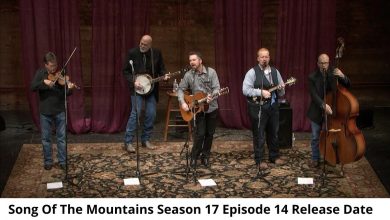Why is CBC radio forgetting its classical music lovers?
Institutions change, and the CBC is one of them.
That realization was brought home recently by a new book about the history of CBC radio and “art music,” which led me to think about Ben Heppner and the venerable broadcast institution. While I’d grown up with the CBC’s coverage of classical music, I’d listened most recently to Heppner on the final broadcast of his opera program “Backstage” last September. These two events struck in me a kind of nostalgia: they made me realize that the CBC’s coverage of classical music simply ain’t what it used to be.
Ben had surprised me by becoming a radio host in the first place. He confessed on air that it had actually been his ambition since hearing Howard Dyck host “Saturday Afternoon at the Opera,” which Dyck hosted. After all, here was Canada’s greatest tenor, an international opera star, whom I had heard at the Metropolitan Opera and Salzburg Festival, among other far-flung places. What possessed him?
For eight years we heard Heppner’s answer. After experiencing intermittent vocal problems and looking forward to the possibility of a new career, he had discovered this new role for his voice. Succeeding Dyck on “Saturday Afternoon” as well as establishing a new opera program, “Backstage,” he quickly proved himself to be a radio animal, comfortable with the informal relationship between broadcaster and listener.
The CBC wasn’t always so informal. Growing up in Vancouver decades ago, I remember concerts by its national network of orchestras, offering often challenging music and often intelligent commentary. It was a serious business.
Those days are history now. The orchestras and concerts have disappeared and so has most of the critical commentary associated with them. To be blunt about it, from a musical point of view, CBC English-language radio has dumbed down.
All of which makes the recent appearance of the aforementioned book timely. “John P.L. Roberts, the CBC/Radio Canada and Art Music,” (from Cambridge Scholars Publishing and edited by Friedemann Sallis and Regina Landwehr) expands on a two-day symposium held in 2015, marking Roberts’ donation of his papers to the University of Calgary. Among his several appointments, the Australian-born pianist-educator-administrator was dean of the Faculty of Fine Arts at the university from 1987 to 1995.
But as he would be quick to acknowledge, the seminal period in his long life (he is currently a nonagenarian) was the just over 30 years he spent as a producer, administrator and adviser to the CBC.
As the book makes clear, these now appear to have been golden years and Roberts was the right man in the right place to make thing happen.
Hired by CBC Radio in 1955 and sent to Winnipeg, he wound up producing a broadcast of the Beethoven First Piano Concerto featuring a young pianist he had never heard of named Glenn Gould. The lifelong friendship that followed their meeting led to the pianist’s introducing Roberts to the world of Canadian music and the producer fostering Gould’s singular career with the CBC.
Gould not only appeared regularly on CBC radio and television (yes, CBC television used to produce classical music programs), he invented a new genre he dubbed contrapuntal radio, developed in a series of meticulously edited documentaries. Throughout this period Roberts, particularly in his role as head of radio music, cultivated Gould’s creativity and that of Canadian musicians across the country.
He quickly expanded the corporation’s commissioning and presentation of new Canadian music, advocated establishing the CBC’s own record label (now sadly defunct) and gave “classical music” a prominence it has since lost. The details of his challenges and achievements are chronicled in the pages of the book, which is not so much what one would characterize as “a good read” so much as a valuable resource for those interested in learning more about broadcasting in Canada.
Canadian society has changed considerably since Roberts’ arrival and defenders of today’s CBC would probably argue that the corporation has tried to reflect those changes. As the book points out, “so-called serious music had an advantage in Canadian cultural policy until the late 1960s at least, because no one involved in policy decisions considered popular music as a suitable vehicle for establishing or promoting Canadian cultural identity.”
That attitude has changed. With Heppner’s “Backstage” appearing only as reruns, and despite “Saturday Afternoon at the Opera” still airing (presented by Kwagiulth and Stó: lō First Nations mezzo-soprano Marion Newman — Nege’ga), much of what I hear could easily be heard on a commercial station.
Why, I wonder, should government be subsidizing the CBC to produce what is already available on commercial radio? Like Britain’s BBC, after which it was largely modelled, it originally had higher goals. Isn’t it time for proper government funding to save the CBC from playing the numbers game, and isn’t it time for proper leadership within the CBC to aim for higher cultural standards?
JOIN THE CONVERSATION




